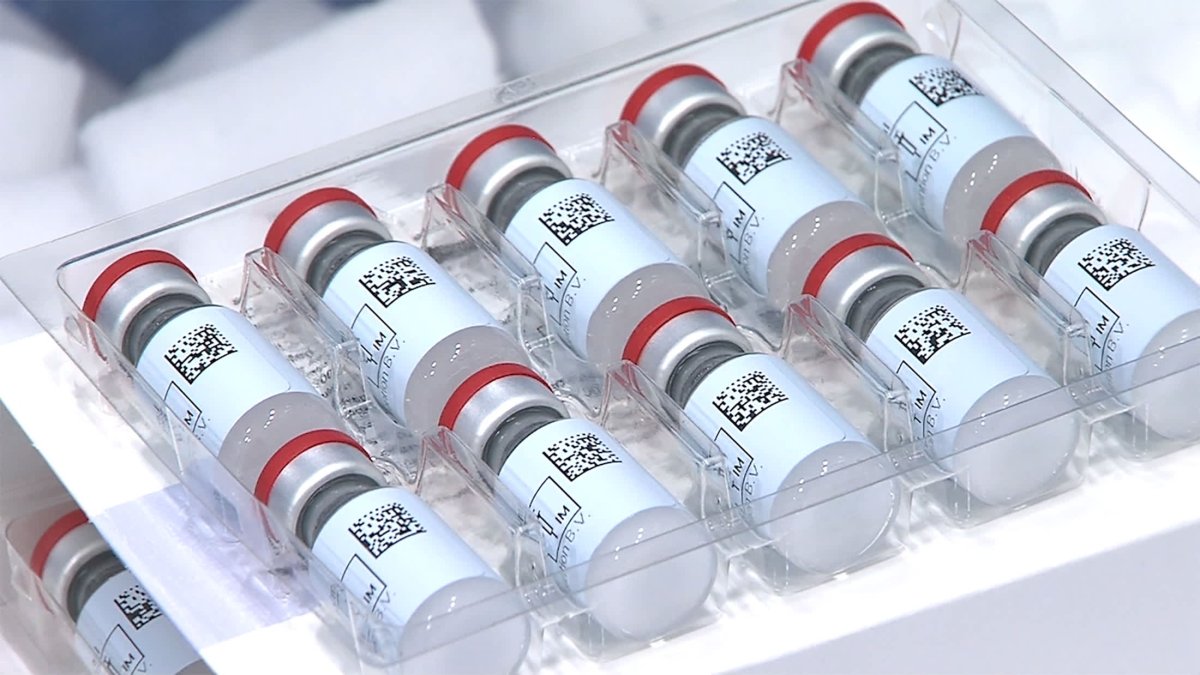
As Johnson & Johnson began shipping its coronavirus vaccine throughout the United States Monday, some health experts expressed new hope for controlling the virus and an eventual end to the pandemic. NBC 5’s Alex Maragos has more from a local doctor who is optimistic about what the new vaccine means for Americans.
As Johnson & Johnson began shipping its coronavirus vaccine throughout the United States Monday, some health experts expressed new hope for controlling the virus and an eventual end to the pandemic.
Over the weekend, the company's coronavirus vaccine became the third to receive emergency use authorization from the United States' Food and Drug Administration. Unlike the two-dose Moderna and Pfizer vaccines, it works with just one shot.
Four million doses were expected to be shipped immediately from a facility in the Louisville, Kentucky, area, with 20 million coming by the end of the month.
Dr. Jeffrey Kopin, the chief medical officer at Northwestern Medicine Lake Forest Hospital, said the U.S. has come a long way in one year, since March of 2020.
Feeling out of the loop? We'll catch you up on the Chicago news you need to know. Sign up for the weekly Chicago Catch-Up newsletter here.
"There is no way that I would have been able to say with a straight face one year ago that on March 1, 2021, we would have not one, not two, but three very effective vaccines against COVID-19," the doctor said.
Kopin said the vaccines from Johnson & Johnson, Moderna and Pfizer all offer strong protection against the virus, and people shouldn't get caught up in the numbers.
"Sixty-six percent, 85 percent, 95 percent, that’s not what’s important," he said.
Local
The doctor said he believes that in April, one month from now, there will be enough vaccine supply to go around.
Like the other COVID-19 vaccines, the main side effects of the J&J shot are pain at the injection site and flu-like fever, fatigue and headache.
An FDA fact sheet for vaccine recipients says there is “a remote chance” that people may experience a severe allergic reaction to the shot, a rare risk seen with the Pfizer and Moderna vaccines. Such reactions are treatable, and vaccine recipients are supposed to be briefly monitored after the injection.
Dr. Stephen Schrantz with the University of Chicago Medicine says now isn't the time to be choosy.
"The sooner you can get a shot, the better," he said.
Schrantz worked on the J&J trial at the University of Chicago to ensure diversity and efficacy went hand in hand.
"We worked really hard to make sure that we were including all different types of people of color in our surrounding neighborhoods to make sure that they were part of this important study," he said.
The vaccine has been authorized for emergency use in adults 18 and older for now. But like other manufacturers, J&J is about to study how it works in teens before moving to younger children later in the year, and also plans a study in pregnant women.